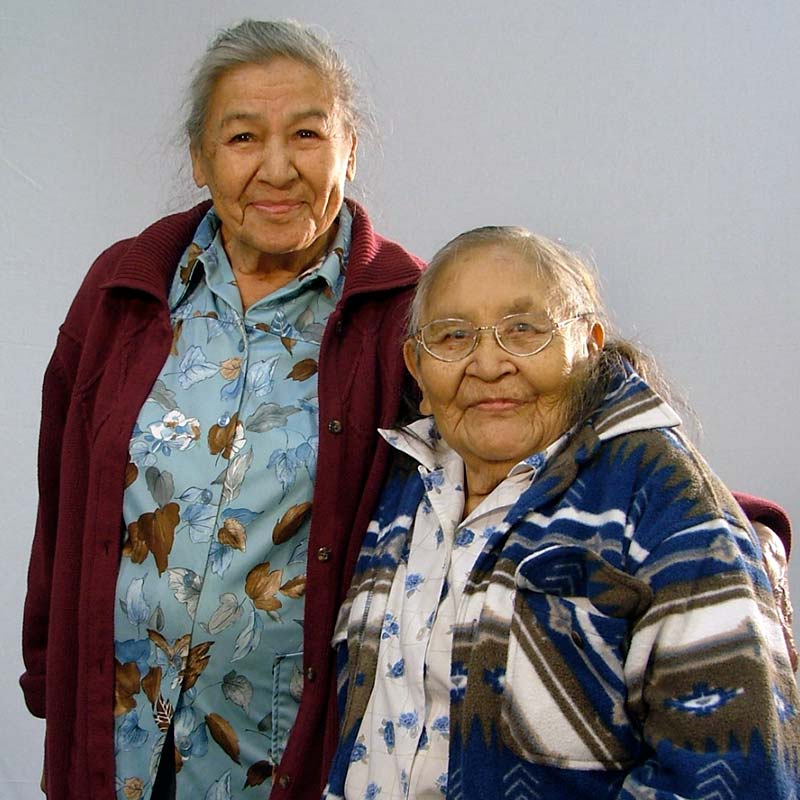Cancer Patient Navigator
Patient Navigation Resource CenterRecorded Webinar - Simplifying Principal Illness Navigation & Reimbursement: How to Get Started. Click Here for Details.

NOTE: Information about Native Patient Navigation Training Modules is under the Training Tab; https://natamcancer.org/Training
Cancer care is fragmented, requiring cancer patients to receive services from multiple facilities as well as within diverse departments and centers of the cancer facility. Patient Navigators provide continuity to overcome such fragmentation. A Native Patient Navigator (NPN) is a trusted member of the local American Indian / Alaska Native (AI/AN) community who is trained to work directly with individuals to facilitate timely access to healthcare by eliminating or navigating barriers that may impede care. NPNs begin by providing outreach and education but continue providing support throughout the cancer continuum (outreach and education through end-of-life). Their work usually begins working with an individual in the community but continues as they cross the threshold of the clinic to work with the patient and other members of the healthcare team in the clinical setting. Although NPNs provide support and help throughout the cancer continuum, they do NOT provide medical advice. Native American Cancer Research Corporation (NACR) initiated the first AI NPN program in 1994 and has been conducting NPN training since 1995.
What is a Cancer Patient Navigator?
A cancer patient navigator is an individual trained to help identify and resolve real and perceived barriers to care, enabling patients to adhere to care recommendations and thus improve their cancer outcomes.
- According to Harold P. Freeman, the founder of the patient navigation model, “patient navigation is a:
- Patient‐centric healthcare service delivery model
- Concentrates on the movement of patients along the continuum of medical care
- Beginning in the community and continuing on through testing, diagnosis, and survivorship to the end of life.”
- The goal of patient navigation is to improve outcomes in underserved populations by eliminating barriers to a timely cancer diagnosis and treatment in a culturally sensitive manner.
Examples of competencies from the American Cancer Society’s National Navigation Roundtable Domains for Training and Certification Competencies
I. Ethical, cultural, legal, and professional issues
- Competency: Demonstrate sensitivity and responsiveness to a diverse patient population, including but not limited to respecting confidentiality, organizational rules and regulations, ethical principles and diversity in gender, age, culture, race, ethnicity, religion, abilities, sexual orientation and geography.
II. Client and care team interaction and communication skills
- Competency: Apply insight and understanding concerning human emotional responses to create and maintain positive interpersonal interactions leading to trust and collaboration between patient/client/family and the healthcare team. Patient safety and satisfaction is a priority.
III. Health Knowledge
- Competency: Demonstrates breadth of health, the cancer continuum, psychosocial and spiritual knowledge, attitudes and behaviors specific to their PN (clinical/licensed or non-medical licensure) role

IV. Patient Care Coordination
- Competency: Participates in the development of an evidence-based or promising/best practice patient-centered plan of care, which is inclusive of the client’s personal assessment and health provider/system and community resources. The PN acts as liaison among all team members to advocate for patients in order to optimize health and wellness with the overall focus to improve access to services for all patients. PN conducts patient assessments (needs, goals, self- management, behaviors, strategies for improvement) integrating clients’ personal and cultural values
V. Practice-based learning
- Competency: Optimizes navigator practice through continual professional development and the assimilation of scientific evidence to continuously improve patient care, based on individual PN gaps in knowledge, skills, attitudes and abilities.
VI. Systems-based Practice
- Competency: Advocate for quality patient care by acknowledging and monitoring needed (desirable) improvements in systems of care for patients from enhancing community relationships and outreach through end-of-life. This includes Enhancing community relationships, developing skills and knowledge to monitor and evaluate patient care and the effectiveness of the program.
VII. Domain: Communication/Interpersonal Skills
- Competency: Promote effective communication and interactions with patients in shared decision making based on their needs, goals, strengths, barriers, solutions and resources. Resolution of conflict among patients, family members, community partners and members of the oncology care team is demonstrated in professional and culturally acceptable behaviors.
The attachments below list Patient Navigator competencies from different organizations / sources. None fit every Patient Navigation program's needs (i.e., no one size fits everyone) and Patient Navigation programs need to select the competencies that are the best match for their local program.
- Colorado community and clinical staff volunteer to create a list of competencies and identified examples of behaviors that relate to each competency.
- George Washington University is a nationally recognized leader on Patient Navigation.
- The University of Colorado coordinate the Patient Navigator Training Collaborative.
- Colorado Public Health and Environment has identified Patient Navigator Competencies with an introduction clarifying the document.
Examples of Toolkits to assist Patient Navigators are on the Resources Page
NACI Care™ Provides Metric Reports Recommended for Accreditation
In 1999, the Institute of Medicine recommended that quality care is measured using a core set of metrics. The Academy of Oncology Nurse and Patient Navigators (AONN+) identified ~36 core competencies in 2017 that subsequently have been supported by national organizations, including but not limited to the:
- American Cancer Society's National Navigation Roundtable
- American College of Surgeons (ACOS), Commission on Cancer (CoC)
- American Society of Clinical Oncology (ASCO)'s Quality Oncology Practice Initiative (QOPI)
- Center for Medicare and Medicaid's Oncology Care Model (OCM)
- Merit-based Incentive Payment System / Alternative Payment Models (MIPS/APMs)
- National Accreditation Program for Breast Centers (NAPBC)
- Oncology Nursing Society (ONS)
These metrics are being used to evaluate whether patient navigation can improve outreach throughout end-of-life and overall value in healthcare. They also are being used as criteria for patient navigation accreditation certification and programs.
Download Workforce Development Job Performance Behaviors
NACI Care™ Organization for the ~36 Reports based on the 2017 competency domains
(excludes Metric 15: Navigation Operational Budget: Monthly operating expenses by line item)
Coordination of Care / Care Transitions
- Metric 1. Treatment Compliance
- Metric 2. Barriers to Care
- Metric 3. Interventions: Referrals
- Metric 4. Clinical Trials Education
- Metric 5. Clinical Trial Referrals
- Metric 6. Patient education
- Metric 7. Referrals to revenue-generating services
- Metric 8. Diagnosis to initial treatment
- Metric 9. Diagnosis to First Oncology Consult
Research, Quality, Performance Improvement
- Metric 10. Patient Experience / Patient Satisfaction with Care
- Metric 11. Patient Experience / Patient Satisfaction with Care (program goals)
- Metric 12. Patient Transition from Point of Entry
- Metric 13. Diagnostic Workup to Diagnosis
Operations Management, Organizational Development, Health Economics
- Metric 14. 30-, 60-, 90-Day Readmission Rate
- Metric 16. Navigation Caseloads
- Metric 17. Referrals to revenue-generating services by PN
- Metric 18. Hospital: Inpatient Oncology Unit Length of Stay
- Metric 19. No show rate
- Metric 20. Patient Retention through Navigation
- Metric 21. Emergency Department Utilization
- Metric 22. Emergency admissions per Number of Chemotherapy Patients
Community Outreach, Prevention
- Metric 23. Cancer Screening Follow-Up to Diagnostic Workup
- Metric 24. Cancer Screening
- Metric 25. Completion of Diagnostic Workup
- Metric 26. Disparate Population at Screening event
Professional Roles and Responsibilities
- Metric 27. Navigation Knowledge at Time of Orientation
- Metric 28. Oncology Navigator Annual Core Competencies Review
Psychosocial Support, Assessment
- Metric 29. Psychosocial Distress Screening
- Metric 30. Social Support Referrals
Patient Empowerment, Patient Advocacy
- Metric 31. Patient goals
- Metric 32. Caregiver support
- Metric 33. Identify Learning Style Preference
Survivorship and End of Life
- Metric 34. Survivorship Care Plan
- Metric 35. Transition from Treatment to Survivorship
- Metric 36. Referrals to Support Services at the Survivorship Visit
- Metric 37. Palliative Care Referral
Different Professions that May Include Patient Navigation Roles &/or Functions
The Patient Navigator continues working with the patient from community interactions through the door of the clinical setting and in collaboration with members of the health care team within the clinic.
Community or Lay Patient Navigator
Licensed Nurse or Social Work Navigator
Peer Educator or Advisor
Promotores de Salud
Lay Health Advisor
Community Health Worker